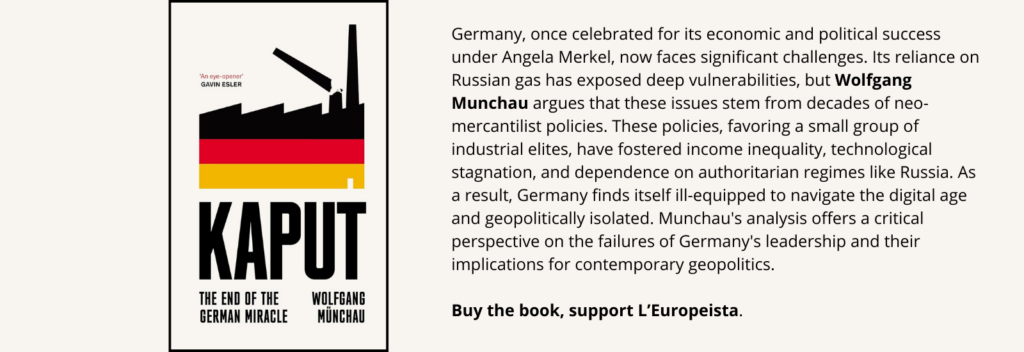Artificial intelligence and the natural deficiency of the superbonus

That’s all we should talk about in Italy, namely how our country with the Superbonus has burned through sufficient resources to implement an investment plan in innovation on a level comparable to the one launched by Donald Trump on AI. Luciano Capone summed it up with ruthless lucidity, and in the words of the journalist (and author with Carlo Stagnaro of the book‘Superbonus. Come bankruptisce una nazione‘) encapsulates all the drama of a country that has chosen to tie up resources in a sector lacking strategic vision, instead of investing in the future. With the billions burnt in the Superbonus, Italy could have laid the foundations to become a technological power, able to compete in the most advanced sectors and position itself as a protagonist in the era of artificial intelligence. Instead, our country has preferred to disperse its potential in short-lived interventions, in the classic spaghetti-style ‘brick’, leaving the technological revolution to take place elsewhere, far away from our lands.
An Artificial Intelligence Fund: a real alternative
If Italy had earmarked even a portion of the 120 billion euro Superbonus for the creation of a fund for artificial intelligence and technological innovation, the country might be in a completely different position today, facing a quantum leap that, if exploited, could in a short time heal the national economy’s vices, flaws, and productivity lags.
With these funds, it would have been possible – among many other things – to create a national technology infrastructure, capable of hosting advanced research centres and attracting international investment, to support the birth of innovative start-ups, providing them with access to capital and cutting-edge technologies, to train a new generation of specialised workers, prepared for the professions of the future linked to artificial intelligence and digitalisation, and to modernise traditional sectors such as manufacturing, tourism and agriculture, integrating them with innovative technological solutions.
These interventions would not only improve Italian competitiveness, but also generate skilled jobs and sustainable development opportunities, positioning Italy as a European leader in innovation.

Instead, the Superbonus has tied up resources in a sector that has been a brake on the country’s growth for decades. Construction, while important, cannot be the main engine of economic development. The decision to concentrate billions of euro in building bonuses has led to a bubble of often poorly executed works, widespread fraud and a system that has rewarded immediate profit at the expense of quality and long-term vision.
The problem is not only economic, but cultural.In Italy, investing in ‘bricks and mortar’ is still perceived as a safe choice, a refuge for resources, to the detriment of more ambitious sectors that are essential for the future. This mentality has turned the Superbonus into a symbol of our inability to adapt to the times.
A future we can still choose
The failure of the Superbonus should serve as a warning: Italy cannot afford to waste any more opportunities. Public resources must be invested strategically, focusing on sectors capable of generating sustainable growth and positioning the country among the global leaders in innovation.
It is not too late to change course. The world of artificial intelligence, advanced technologies and digitisation is still evolving. Italy (like all of Europe) still has the skills, competences and talent to play a leading role, but it must have the courage to abandon old paradigms and embrace the future. We can no longer afford to look backwards. It is time to invest in what really matters: innovation, technology and skills.
Italy must choose, and with it the entire continent of Europe.











